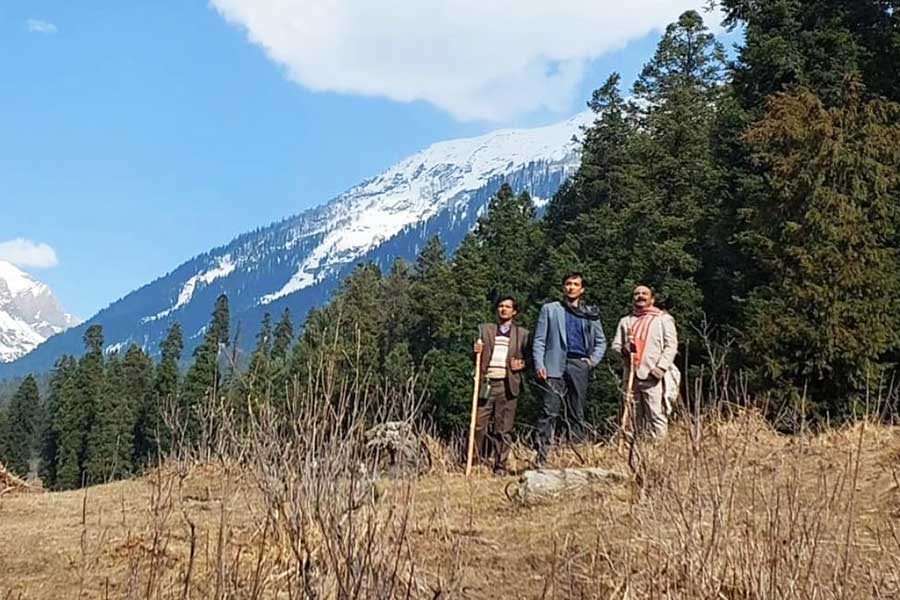In the 21st century, who is a traveller? In a piece in The New Yorker last year, the philosopher, Agnes Callard, argued against the supposed ennobling effects of travel, likening modern-day travel to tourism. Is the ‘subaltern tourist’ then an oxymoron? Let us revisit the 20th century to examine this.
Travel writing was historically a lowbrow genre, both in terms of financial success and academic respectability, until two significant books appeared: Paul Theroux’s The Great Railway Bazaar (1975) and Paul Fussell’s Abroad: British Literary Travelling Between the Wars (1980). The “Modern Travel Book”, as identified by Fussell, is
mediated by the pronounced subjective element of the author-persona that makes the genre a post-romantic celebration of the cult of the individual.
1980 also saw the publication of another — now out-of-print — travel book that illustrates the norm by exception. In Heather Wood’s Third-Class Ticket, the protagonists are “subaltern tourists” from an unnamed village near Sealdah forced on a train journey very unlike the ‘gentleman traveller’ trope of Theroux who makes acerbic observations about poverty and the “look of saintliness” hunger accords to the subjects of his gaze from his first-class cabin in The Great Railway Bazaar. The author of Third-Class Ticket, a woman, is an absent-presence. The narrative is focalised through the villagers who are on a months-long tour of India in 1969 in a third-class carriage due to the whims of a well-meaning landlord. Srimati Uma Sen bequeathed her wealth to set up a trust fund so that the poor, illiterate inhabitants of her village could go on annual train trips to experience the diversity of India and broaden their minds. The benefactor herself was widely travelled and wanted the poor to experience what it might feel like to be tourists. Their itinerary was to cover the length of the country, covering not only pilgrimages but also educational expeditions like visits to factories, universities, and administrative landmarks such as the Parliament House.
The book is an anthropological account, structured like a novel, of this doomed, inaugural trip; for it leads to numerous miseries and two deaths. Here, the subaltern cannot speak as the author withholds their real names, foregrounding the villagers as ‘tourists’ even though they have no understanding of the term. As the journey progresses, the villagers grasp the concept of ‘tourists’ — a term suggesting privilege — and begin to identify themselves as such. One of the characters, Reena, the village storyteller, overhears a shopkeeper in Calcutta educating them on tourists. As the shopkeeper differentiates between tourists and pilgrims, who are generally poor and travel with specific religious goals, Reena realises that she and her group of villagers are now tourists. Initially, people gather to laugh at her, but their incredulity grows after hearing about Srimati Uma Sen’s trust fund. They, thereafter, refer to the villagers, rather disparagingly, as tourists.
This illustrates how out of place the villagers are as tourists, thrust into this position by the eccentricities of a wealthy benefactor. After the village healer goes insane and dies by suicide on the tracks, railway officials decide to terminate the tour upon reaching Calcutta with promises of future tours being funded by the will. Wood poignantly depicts the end of this journey as the villagers begin quarrelling amongst themselves. Amidst the chaos, there are laments about the lack of recognition from the railway establishment: “Is that all? Is there no word from Baroda House?” “Do we not warrant a feast at the end?” “Will there be no speeches?”
Upon returning, the villagers don’t find ‘home’ the way they left it. The Bangladesh Liberation War brings large numbers of refugees — another kind of travellers — to their village. The journey leaves lasting scars and changes each of them forever.
These forgotten ‘tourists’ are truly travellers, engaging with the term in its etymological sense, marked by labour and suffering.
Abhishek Chatterjee teaches literature in the School of Liberal Arts and Sciences, R.V. University, Bengaluru











